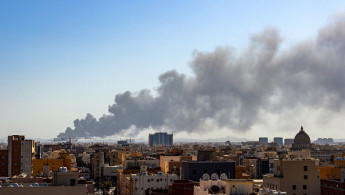Yemen warring parties trade charges of truce violations
Yemen's warring parties on Tuesday traded accusations of violating a ceasefire agreement, three days after the two-month truce went into effect.
The internationally recognised government, supported by a Saudi-led military coalition, and the Iran-backed Houthi rebels have been locked in a violent power struggle since 2014, when the insurgents seized the capital Sanaa.
But a United Nations-brokered truce that started on Saturday - the first day of the Muslim holy month of Ramadan - has offered a glimmer of hope in the conflict considered the world's worst humanitarian crisis.
Yemen's foreign minister, Ahmed Bin Mubarak, in a Twitter message accused the Houthi rebels of "breaches".
"The truce has been greatly welcomed, but it is threatened by Houthi's breaches including military deployments, mobilisation of troops & vehicles, artillery and drone strikes," he tweeted in English, without providing details.
While the insurgents did not directly respond to the claims, their media channels also reported alleged "breaches", but by pro-government troops, on Sunday and Monday.
Since 2016, the coalition backing the government has enforced an air and sea blockade on Yemen, with exemptions for aid flights, accusing Tehran of smuggling weapons to the rebels. Iran denies the charge.
Under the latest truce agreement, all ground, air and naval military operations, including cross-border attacks, are meant to cease.
In addition, 18 fuel ships are to be allowed into Hodeida port, a lifeline for Yemen, and two commercial flights a week are allowed into and out of the rebel-held Sanaa airport.
The truce announcement came as discussions on Yemen's devastating conflict were being held in Saudi Arabia - in the absence of the insurgents, who refused to hold talks on "enemy" territory.
The civil war has killed hundreds of thousands, directly or indirectly, according to UN figures, and pushed the country to the brink of famine.
Yemeni President Abedrabbo Mansour Hadi, in remarks Monday in the Saudi capital Riyadh, called on the Huthis to return to the negotiating table in order to "let us heal our torn homeland's wounds".





 Follow the Middle East's top stories in English at The New Arab on Google News
Follow the Middle East's top stories in English at The New Arab on Google News


